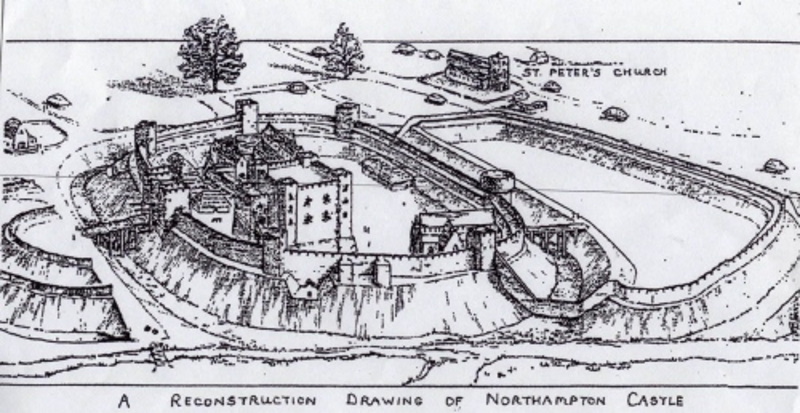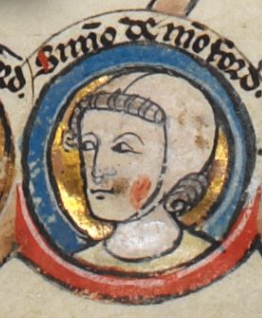Battle of Northampton
Background
In April of 1264, Pope Urban IV absolved King Henry III from his oath to observe the Provisions of Oxford, established in 1258, to resolve a dispute between the King and his barons. The provisions were designed to ensure the King adhered to the rule of law and governed with his barons' advice, allowing them to press their concerns in opposition to the monarchy at three parliaments held each year.

On April 3rd, 1264, the Royal Standard was unfurled within Oxford. King Henry III and his son Prince Edward (future King Edward I) assembled the royalist army and headed for Northampton from Oxford. Northampton controlled the route to and from the Great North Road. The procession was led by Henry's dragon banner with sapphire eyes.
Simon de Montfort's son, also Simon, seized Northampton and summoned the county's men to gather outside the city walls. Despite many protestations, they would be forced to help defend the town's walls.
On April 4th, Henry's army arrived and began to set up south of the town. They brought with them a variety of siege engines, preparing for a long siege, and set them up in what is now called Beckets Park.
Inside the town walls were 80 or so rebel barons and their men, along with townsfolk from around Northampton. Most of the barons' men were students from Oxford and Cambridge who left those universities to establish a new university at Northampton after a significant break with the Papal Legate two years prior.
The royalist forces summoned the baronial troops to surrender, which they declined, hoping they could hold out until Simon de Montfort and his forces could arrive in time to relieve them.
The Second Barons War was about to begin.
Battle
At dawn on April 5th, 1264, the royalist forces began assaulting the south gate of Northampton's town walls. At the same time, another large group of royalists, led by Prince Edward and Philip Basset, headed around the town walls to the west, searching for an easier way to breach the town defenses.
Townsfolk defended the initial attack at the main gate, keeping the royalists at bay. But Edward and the royalists who headed around the walls to the west found a breach in a garden wall of St. Andrews Priory at the north of the town. The breach was further weakened, collapsed, and was wide enough for forty horses to enter.

On hearing of the breach, Simon de Montfort (the Younger) rode up on his horse to try and push the royalists back. He was accompanied by his squire, an unknown sergeant, and others. The royalists were repelled twice, but during a third assault, Simon was thrown from his horse and captured.
The royalists took Simon the Younger prisoner, which threw the baronial forces into disarray as the royalists poured into the town. Some barons hid in churches, but most retreated to Northampton Castle. Henry and the royalists began to burn and plunder the town.
His father, Simon de Montfort, 6th Earl of Leicester, tried to mount a rear guard rescue from the south, but this failed.
On the morning of April 6th, 1264, the royalists began to lay siege to Northampton Castle. The remaining baronial forces, now led by Peter de Montfort, who were holding the castle, surrendered, resulting in a victory for King Henry III and the royalist forces.
Aftermath
Simon de Montfort the Younger was put on trial and exiled for a year. Other barons were put in prison. University of Northampton scholars were among the local townsfolk fighting with the baronial forces against the King, and Henry wanted to execute them. Still, as many were sons of his nobles, he was persuaded to spare them.
Instead, King Henry III dissolved the University of Northampton in 1265 and signed a Royal Decree that banned the establishment of a new university in Northampton. Henry's desire to promote Oxford University may have also impacted his decision to dissolve Northampton University. The decree was finally reversed in the 21st century, allowing a new university to be established in Northampton.
The royalists won the Battle of Northampton, which would be King Henry III's only victory in battle during his reign, but this was far from the end of the conflict between the King and his barons, who would clash again six weeks later at Lewes.






 (The Younger)
(The Younger)

